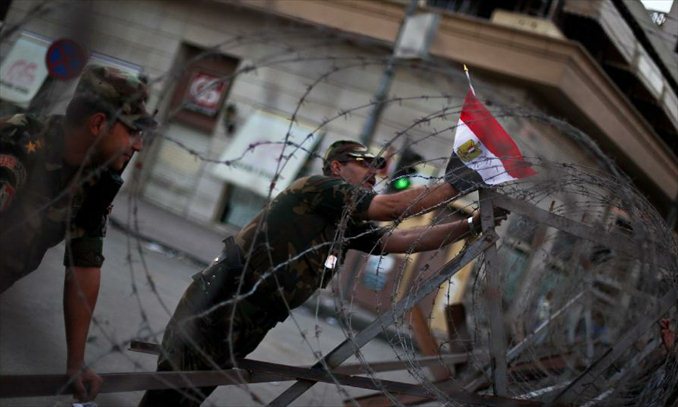Lessons for China in chaotic Egyptian upheaval

As Cairo falls into violent street battles and bloodshed has been triggered by a controversial draft constitution, observers around the world are expressing concerns for the nascent democracy in a post-revolution Egypt.
Mohamed Morsi, the country's first democratically elected president, is being blamed by some Egyptians for overriding law with Islamic doctrines and making a grab for power. This mirrors an important difficulty in Egypt's democratic experiment which has long been anticipated. While the Egyptian revolution was taking place, there were already doubts whether reconciliation between secular and religious forces would be achieved even if democracy was implanted on the surface.
We still remember the V sign for victory, brandished by Egyptians in Tahrir Square as they celebrated their victorious uprising. Two years later, the mentality behind launching a revolution via street clashes hasn't disappeared. The roots for a calm, free dialogue between various forces cannot be fostered overnight.
Democracy's benefits are embodied in the pragmatic interests it can bring and its capability to boost social tolerance and progress.
Egypt has been trapped in factional political confrontation and street clashes which bring increasing division and unrest. Nobody knows how long it would take before Western democratic success could be reproduced in Egyptian soil.
While supporters of and protestors against Morsi thronged into the street, throwing Molotov cocktails, rocks and iron bars at each other, a scuffle for power was still going on between old forces of the nation. This is a familiar pattern that has already taken place in other Middle Eastern countries like Iraq and Libya.
Egypt once hoped to be a successful example produced by the Arab Spring. Now the nation is swallowing the bitter pill of abrupt change, which took place before pillars for democracy and rational social governance had been prepared. Egypt is going to experience painful development in its society, economy and culture, and in this process democracy alone can't succeed.
The current turbulence in Egypt is necessary for a country in transition, but Egyptians aren't prepared for that. They don't have the necessary patience, and want to see immediate benefits brought about by the revolution. The social progress China made through reform is much more tangible than what revolutions have brought to many other countries, while China has paid the lowest price. This is what we should be proud of and cherish. The upheaval in Egypt is a free lesson for China.